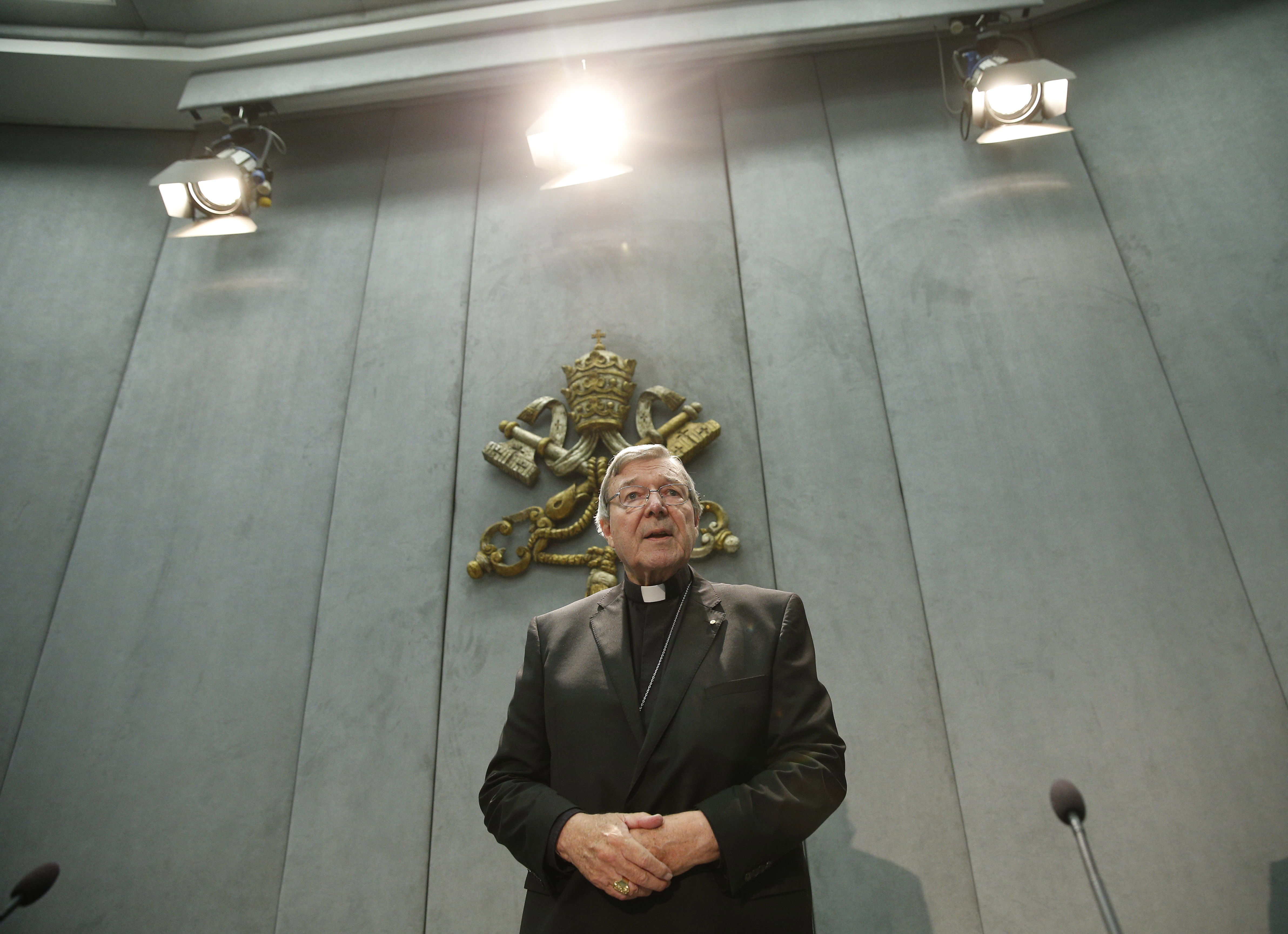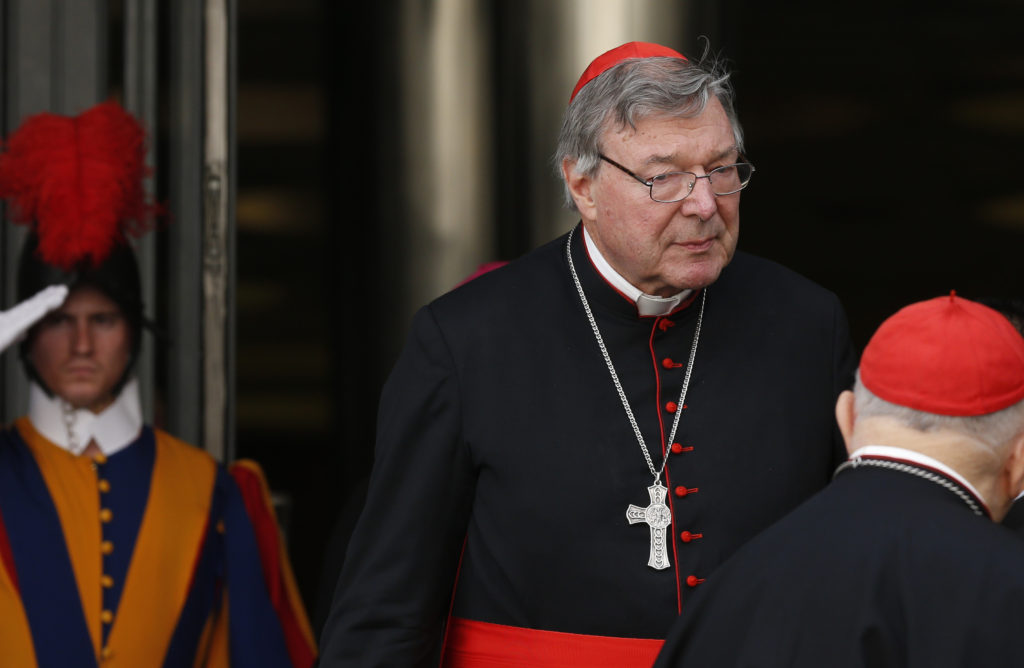
(CNS) — In late February, the Church pledged to put the victims of abuse first, to listen to them with an open heart, to root out the culture of protecting priests accused of abuse. Now a number of lay Catholics are undercutting all these good and overdue intentions by challenging the guilty verdict of Australian Cardinal George Pell.
Let’s be clear about it: Nobody can claim to know conclusively whether Cardinal Pell is guilty of the charges put against him except for the two people alive who were in that room on the day in question.
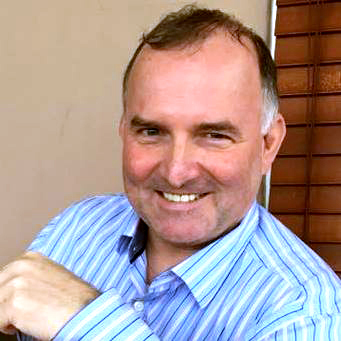

The jurors in the trial believed there was no reasonable doubt about Cardinal Pell’s guilt. It would be absurd if they all were in on a conspiracy, as some have suggested. Maybe the jurors were mistaken; maybe they got it right. Maybe Cardinal Pell’s defense was inadequate, and the prosecution made its case well. We don’t really know; less so if we did not follow the trial every day in the courtroom, as the jurors did.
So, the enthusiasm with which Pell’s defenders — who include both ideological warriors and reasonable people — protest the cardinal’s innocence is misplaced. It’s one thing to wonder about whether justice was truly done in this case, but another thing altogether to protest the cardinal’s innocence (in arguments usually drawing from the defense’s case, which evidently failed to persuade the jury).
But that’s not the biggest problem with defending Cardinal Pell. What should trouble us is that in the first instance of a cardinal being convicted of abuse, so many Catholics immediately jump to his defense. They instinctively believe the accused cleric, and not the victim. And this is exactly the mindset that helped create the scandal in the first place.
How do we communicate to the victims of clerical abuse that the Church will hear them when Catholics are implicitly or even explicitly label Cardinal Pell’s victim/accuser a liar or as deluded?
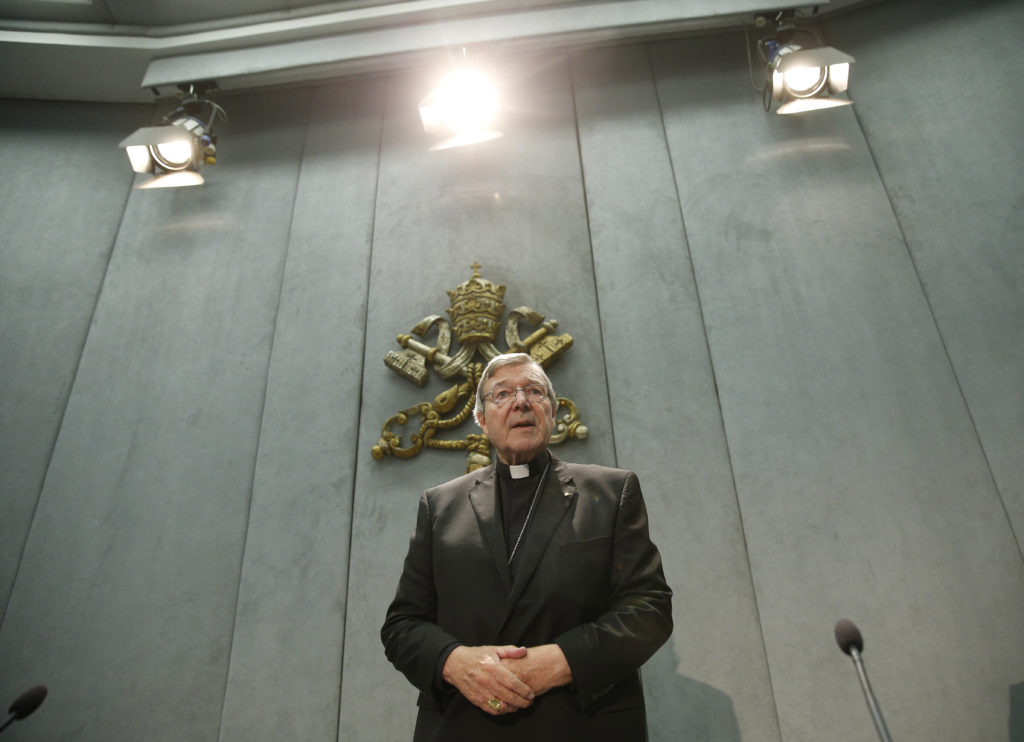

How can we say that we have no tolerance for abuse and that those accused of abuse must face justice when fellow Catholics side with the cleric over the complainant and dismiss the bona fides and/or competence of the judiciary system?
Whether or not Cardinal Pell is indeed guilty, within the context of the abuse scandal some of the specific arguments raised in the lay defense of him are intrinsically problematic and are best left to the review of competent authorities in the courtrooms.
Firstly, the argument that Cardinal Pell should not have been convicted on the basis of the “uncorroborated” testimony of his accuser is appalling. It is a strategy that is deployed to disempower the victims of rape everywhere. Testimony of sexual violence tends to be nearly impossible to corroborate exactly because rape is not a spectator sport. It happens in secret, usually without witnesses.
In the cardinal’s case, we have to assume that the prosecutors would not have risked an expensive trial and retrial if the accuser wasn’t reasonably credible, and they undoubtedly tested his credibility thoroughly.
Secondly, the cardinal’s defenders refer to the denials by the second victim — who has since died of a drug overdose — to his suspicious mother that he had been abused. Perhaps his denials were indeed true. But there may be many reasons why a victim of abuse might issue such denials. There is the shame which abuse inflicts on them, and there is the fear that they might not be believed.
If the second alleged victim feared that he might be disbelieved, his denials of having been abused would be understandable — and the doubts which Cardinal Pell’s defenders now directed at his friend would justify these concerns.
Such fears must be taken into account and respected. This tragic man’s denials might have been true, but if we do not even entertain the possibility that they weren’t, then we exhibit a troubling lack of understanding of how the victims of abuse might deal with what was done to them.
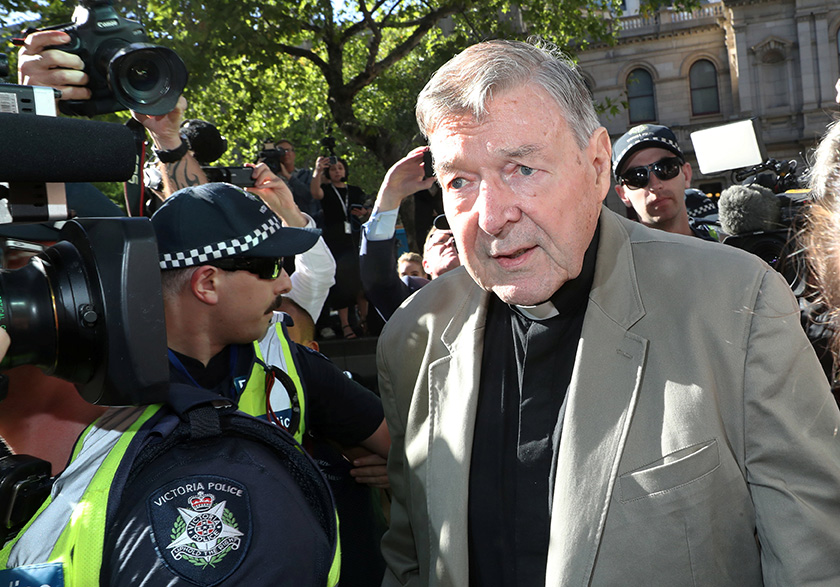

Thirdly there is the precarious argument put forward by some of Cardinal Pell’s defenders that he had no pattern of abusive behavior.
Indeed, there are no previous cases that proved Cardinal Pell guilty of abuse, but the allegations that have landed him in jail are not the first leveled against him. A canonical investigation in 2002 into allegations of abuse by the cardinal, committed when he was a seminarian, was dropped due to lack of corroborating evidence.
Judicially, we must presume his innocence in that case, and we cannot declare him guilty of it simply on a hunch. But there is a record of allegations, and when such a record exists, one cannot claim an absence of a pattern.
But even if the previous allegations were baseless, and even if Cardinal Pell had never faced any accusations at all, using that argument in his defense is a throwback to the times when allegations of clerical abuse was covered up because Father was not known to do “that sort of thing” (with the attendant belief that the accuser was lying).
Perhaps Cardinal Pell is the casualty of an injustice. Perhaps he is suffering the consequences of public anger about the clerical abuse and their cover-up (the latter he has been accused of as well). Or maybe the jurors in that Melbourne court got it perfectly right. That will be for the appeals court to decide.
In the interim, those inclined to defend the cardinal ought to take a step back and consider how their actions, whatever the merits of some of their arguments, are sabotaging the Church’s response to the abuse scandal, and how their protestations are an act of abuse to all the victims of abuse — especially those whose suffering was ignored, denied and rejected.
— By Gunther Simmermacher, Catholic News Service. Simmermacher is the editor of “The Southern Cross,” South Africa’s Catholic weekly. This commentary first appeared online March 1 on the “The Southern Cross” website.
The views or positions presented in this or any guest editorial are those of the individual publication and do not necessarily represent the views of Catholic News Service or of the U.S. Conference of Catholic Bishops.



